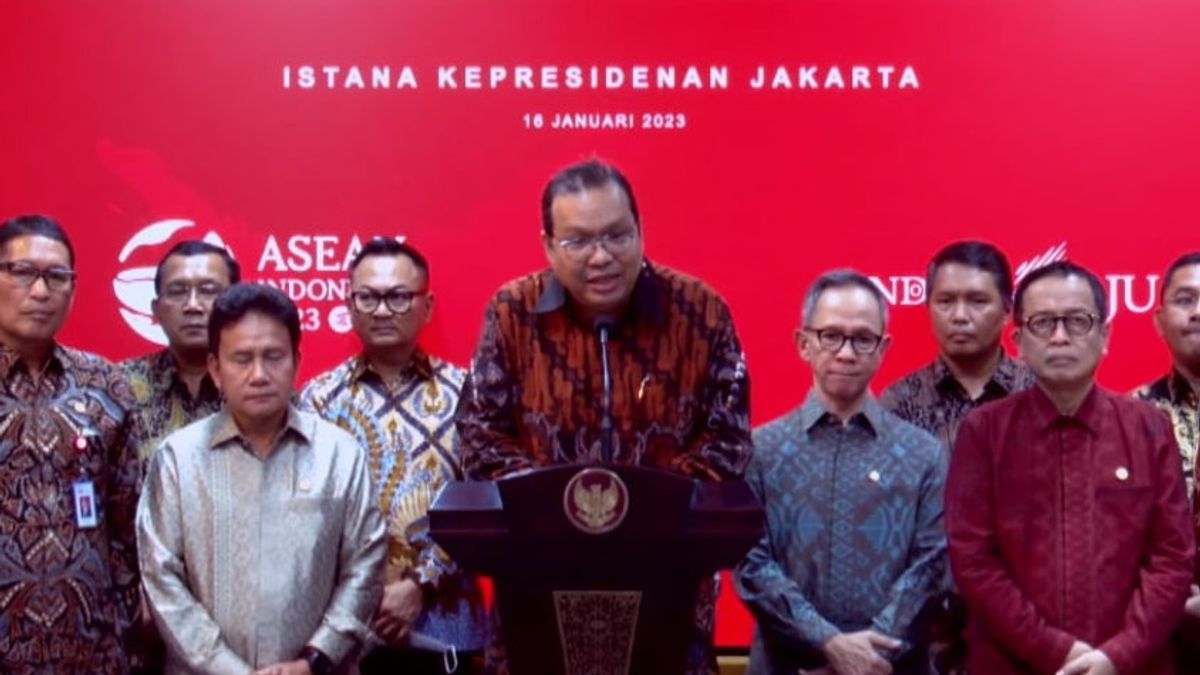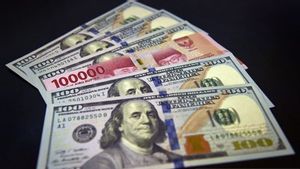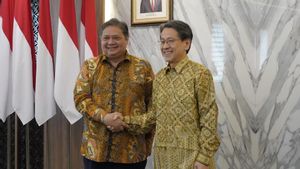JAKARTA - The Indonesian capital market continues to show a high resilience in the face of current economic volatility. Reflecting on the Composite Stock Price Index (JCI), it increased by 0.08 percent at the level of 7,009.63 at the close of trading on November 24, 2023. On a year to date (YTD), the JCI also increased by 2.32 percent from 6,850.98 on January 2, 2023.
In addition, the Indonesian Capital Market has also made a new history with the number of listed companies on the Indonesia Stock Exchange (IDX) having penetrated 900 issuers.
President Director of the Indonesia Stock Exchange (IDX) Iman Rachman said that the total achievements of listed companies have exceeded 900 thanks to the collaboration of all stakeholders in the capital market, through the Initial Public Offering (IPO) and become a new history as well as bringing the IDX into the top five globally in terms of listed companies.
"Today is also a historic day for capital market travel, where today the number of companies has succeeded in reaching more than 900 companies. This shows that our capital market is reliable and trusted as an alternative source of capital to grow large," said Iman on the IDX, November 8.
Meanwhile, the number of listed shares on the IDX in 2023 is 77 companies through an initial public offering (IPO) scheme with a total fund raised of IDR 54.3 trillion.
Iman said that until now there are still around 27 companies queuing up or in the pipeline for the IPO and if reviewed from the type of business, the listed shares on the IDX are currently dominated by the Consumer Cyclicals sector which reaches 16.9 percent of the total with 152 companies.
Furthermore, other sectors that dominate are the Consumer Non-Cyclicals sector, the Financials and Basic Materials sectors, respectively at 13.7 percent, 11.8 percent and 11.3 percent of the total companies listed on the IDX.
Meanwhile, geographically, the distribution of recorded IDX companies is still centered in DKI Jakarta, which is 71.4 percent of the total or a total of 643 listed companies. The provinces with the next most listed companies were West Java at 8.3 percent and Banten at 7.7 percent.
Iman is optimistic that more and more companies from various business sectors in various regions of Indonesia will list their shares and use the capital market as a source of funding.
For this reason, Iman conveyed that various IDX efforts were made to recruit listed company candidates, namely by providing education related to IPOs in the form of seminars, coaching clinics, masterclasses, one-on-one, either at the center or in the regions through the IDX Representative Office.
In the event of improving the quality of listed company candidates, the IDX has adjusted Regulation Number IA in 2021 regarding financial requirements and market capitalization which is expected to accommodate more various types of companies.
After the adjustment of the I-A Regulation, the average market capitalization of the company was recorded at IDR 10.3 trillion or grew by 254.8 percent. Meanwhile, the average amount of funds raised (fund raised) and assets reached IDR 837.7 billion and IDR 4.8 trillion, respectively, or grew 54.8 percent and 146.1 percent.
HPAM Head of Business Development Division Reza Fahmi said the Indonesian capital market has a very important and strategic role in supporting sustainable development in Indonesia.
In addition, the capital market can be an alternative source of financing for the government and the private sector to carry out projects that have a positive impact on the environment, social, and governance.
"The capital market can also be a means of education and socialization for the community to be more concerned and responsible for sustainable development issues," he explained to VOI, Friday, November 24.
Meanwhile, several examples of capital market products and services that contribute to sustainable development such as Sustainable Bonds, Green Bonds or Green Sukuk, Social Bonds, Social Sukuk, Sustainable Bonds or Sustainable Sukuk (Sustainability Sukuk), Sustainable Funds, and Sustainable Index. Index).
In addition, the Indonesian capital market has also issued various regulations and initiatives to encourage the development of a sustainable capital market, such as:
- OJK Regulation Number 51/POJK.03/2017 concerning the Implementation of Sustainable Finances for Financial Services Institutions, Issuers, and Public Companies.
- OJK Regulation Number 60/POJK.04/2017 concerning the Issuance and Requirement of Sustainable Effects.
- Guidelines for the Issuance and Reporting of Indonesian Sustainable Bonds (Indonesia Sustainable Bond Guidelines).
- Guidelines for Management of Sustainable Fund Management Guidelines.
- Indonesian Sustainable Finance Roadmap 2019-2024 (Indonesia Sustainable Finance Roadmap 2019-2024).
- The National Committee for Green Finance (KNKH) or the National Green Finance Committee, which is a committee formed by the government to coordinate and facilitate the development of green finance in Indonesia.
Reza said that the capital market has an important role in sustainable development such as being able to mobilize savings and increase capital and direct it to projects that are in line with Environmental, Social and Governance (ESG) principles.
In addition, Reza added that the capital market could change the company's vision by incorporating ESG criteria into their best management practices by limiting financial access to those who violate ESG and could influence good corporate governance practices that encourage sustainable development through ownership mechanisms.
"The capital market can bridge companies seeking funding as a transitional step to reduce carbon emissions and can encourage innovation and development of sustainable financial principles-based products and services," he said.
According to Reza, the contribution of the capital market to the Indonesian economy is to contribute a large revolving effect (multiplier effect) to the economy, such as increasing tax revenue, encouraging growth and business expansion, and increasing the company's value.
VOIR éGALEMENT:
"The capital market creates opportunities for companies to obtain cheaper and more flexible business capital compared to bank loans. As well as channeling funds from investors to companies that need funds for productive investment, thereby increasing the efficiency of resource allocation," he explained.
Reza said that the capital market also provides opportunities for people to invest and gain profits, thereby improving welfare and equitable income. As well as supporting government programs in terms of development financing, infrastructure improvement, and development of strategic sectors.
Thus, Reza hopes that the Indonesian capital market can continue to contribute to sustainable development in Indonesia by improving the quality and quantity of capital market products and services based on sustainable financial principles.
Furthermore, it can increase public awareness and participation, especially the younger generation, to invest in the capital market by considering the ESG aspect. As well as increasing collaboration and synergy between the government, regulators, market players, academics, and civil society in developing a sustainable capital market.
"Increase transparency and accountability in reporting and supervision of sustainable capital market products and services. Increase the capacity and competence of capital market human resources in implementing sustainable financial principles," he explained.
The English, Chinese, Japanese, Arabic, and French versions are automatically generated by the AI. So there may still be inaccuracies in translating, please always see Indonesian as our main language. (system supported by DigitalSiber.id)














